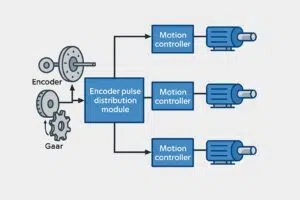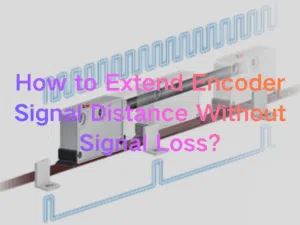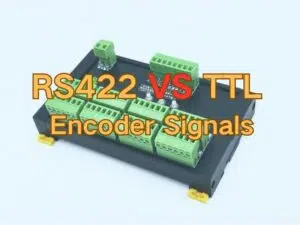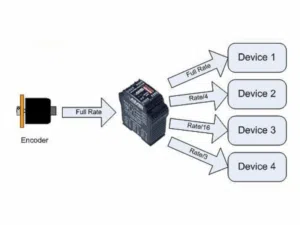Lutando com Clipes de montagem em calha DIN que falham sob pressão, corroem prematuramente ou complicam a instalação? Não é o único. Em ambientes industriais exigentes, uma abordagem de "tamanho único" para Suporte de montagem em calha DIN conduz a períodos de inatividade dispendiosos e a uma manutenção frustrante.
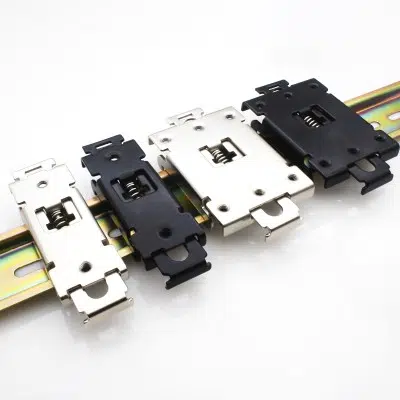
Recommended Product – Explore More from AOSI
Discover AOSI’s solutions designed for industrial automation, control panels, and power systems. Reliable performance, certified quality, and customizable options — all directly from the source factory.
Este guia aborda esses pontos problemáticos, sublinhando a razão pela qual a seleção do clip certo para as suas necessidades específicas - quer se trate de alta vibração, temperaturas extremas ou ambientes corrosivos - é absolutamente crítica. Optimize os seus sistemas e aumente a fiabilidade fazendo escolhas informadas, assegurando que os seus componentes se mantêm firmemente no lugar, independentemente do desafio.
Parte 1. Comparação dos principais elementos de seleção do grampo de montagem em calha DIN
Ao selecionar o adaptador de montagem em calha DIN ideal para a sua instalação industrial, deve ter em atenção composição do material e normas de compatibilidade é fundamental para garantir a fiabilidade e o desempenho a longo prazo. Estes dois elementos fundamentais ditam a forma como o seu Grampo para calha DIN de 35 mm funcionará sob tensões operacionais específicas e integrar-se-á nos sistemas existentes.
1. Composição do material
A escolha do material afecta durabilidade e adequação ambiental. Os suportes de calha DIN em aço proporcionam uma força e resistência à vibração superiores, ideais para uma utilização industrial exigente. Os plásticos de engenharia oferecem resistência à corrosão e isolamento elétrico, perfeitos para aplicações químicas ou no exterior. Selecione com base em necessidades mecânicas ou factores ambientais.
Abaixo encontra-se uma tabela de comparação de clipes de montagem feitos de diferentes materiais.
| Caraterísticas / Material | Aço (zincado) | Aço inoxidável | Plásticos de engenharia (por exemplo, Nylon 6/6, PA GF) |
| Tempo de vida típico | 10-20+ anos (com revestimento/manutenção adequados) | 20-50+ anos (altamente durável) | 5-20+ anos (muito dependente do tipo e da exposição) |
| Corrosão | Bom (galvanizado), mas pode enferrujar se o revestimento estiver danificado | Excelente (resistência inerente) | Excelente (resistência inerente a muitos produtos químicos) |
| Resistência aos raios UV | N/A (exceto em caso de revestimento especializado) | N/A | Varia; os graus estabilizados aos raios UV oferecem boa resistência |
| Temp. Gama | Geralmente -55°C a 150°C+ | Geralmente -55°C a 200°C+ | -40°C a 125°C (típico para tipos comuns) |
2. Normas de compatibilidade e integridade do sistema
Para garantir uma integração perfeita e um desempenho fiável, Clipes de montagem em calha DIN devem cumprir as normas estabelecidas pelo sector.
O clipe para calha DIN de 35 mm foi concebido para EN 60715 (carril "Top Hat")O perfil de calha DIN mais utilizado. Um ajuste correto garante um encaixe seguro, evitando ligações soltas, desalinhamentos ou falhas no sistema.
Além disso, verificar as certificações ambientais, tais como:
- Classificações IP (resistência ao pó/água)
- Listagens UL (conformidade com a segurança)
A adesão a estas normas garante que os clips cumprem os critérios de desempenho, salvaguardando a integridade do sistema e a conformidade regulamentar em aplicações de controlo industrial.
Parte 2 Seleção específica da aplicação: Combinando clipes com seu ambiente
Para além das considerações gerais, o ambiente industrial específico influencia fortemente a escolha óptima de Grampos de montagem em calha DIN. A personalização da sua seleção garante a máxima fiabilidade e longevidade.
1. Aplicações industriais pesadas (vibração elevada/esforço mecânico)
- Necessidades fundamentais: Resistência ao impacto, anti-afrouxamento, elevada capacidade de carga
- Solução recomendada: Grampos de aço para calha DIN
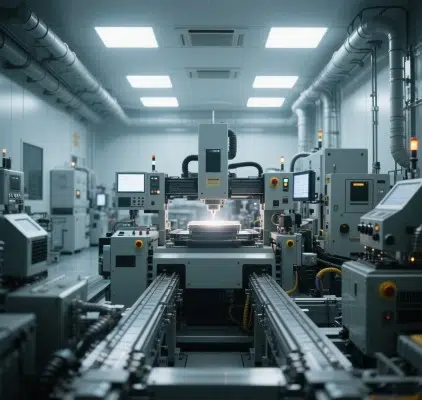
- Caraterísticas críticas:
- Construção metálica de alta resistência para suportar vibrações e tensões constantes
- Mecanismos de fecho reforçados (por exemplo, modelos aparafusados)
- Revestimento anti-corrosão (por exemplo, zincado) para maior durabilidade
2. Processamento de produtos químicos/ambientes húmidos (risco de corrosão)
- Necessidades fundamentais: Resistência química, proteção contra humidade/UV
- Solução recomendada:
◦ Grampos de plástico concebidos: Leve, não condutor, ideal para a maioria dos produtos químicos e humidade
◦ Braçadeiras em aço inoxidável: Alternativa para tensões mecânicas elevadas em condições adversas (por exemplo, ácidos/bases fortes)
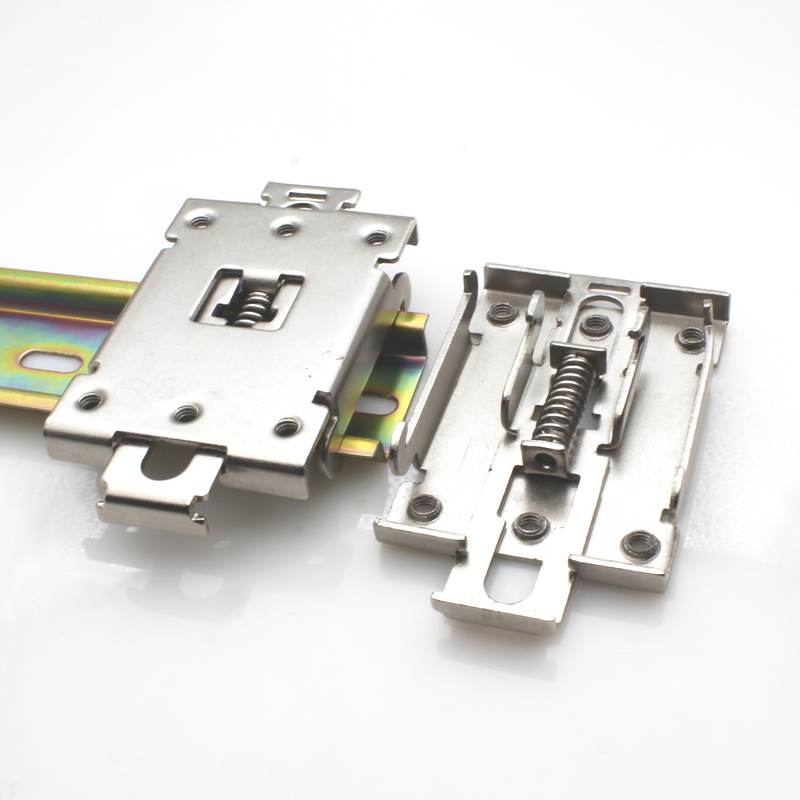
Caraterísticas críticas:
◦ Plástico: Imune à corrosão eletroquímica, resistente a ácidos/alcalinos
◦ Aço inoxidável: Grau 316 recomendado para extrema resistência à corrosão
3. Armários de controlo da automatização (cablagem de alta densidade)
- Necessidades fundamentais: Instalação rápida, isolamento elétrico, eficiência de espaço
- Solução recomendada: Clipes de plástico para calha DIN (padrão de 35 mm)
- Caraterísticas críticas:
◦ Instalação de encaixe sem ferramentas, posicionamento ajustável
◦ O design leve minimiza a carga do carril
◦ O material não condutor evita os curtos-circuitos
Ainda não tem a certeza de qual a solução de calha DIN que se adequa às suas necessidades? Contactar os nossos especialistas-analisaremos as suas necessidades e recomendaremos a configuração ideal.
Parte 3. Comparação de produtos de diferentes fabricantes
Ao selecionar Clipes de montagem em calha DINOs utilizadores industriais avaliam normalmente os produtos de Contacto Phoenix, Weidmüller, ABB, WAGO e AOSI. Eis a sua classificação em categorias críticas de desempenho:
| Caraterística | Contacto Phoenix | Weidmüller | ABB | WAGO | AOSI |
| Durabilidade do material | Aço inoxidável | Liga de zinco | Mistura de nylon | Plástico PBT | 304SS + Revestimento anti-corrosão |
| Velocidade de instalação | Fixação por parafuso (30s) | Snap-On (5s) | Ferramenta necessária | Acionado por alavanca | Snap-On sem ferramentas (3s) |
| Resistência à vibração | 15G (IEC 60068) | 10G | 8G | 12G | Certificado 20G |
| Gama de temperaturas | -40°C a +85°C | -25°C a +70°C | -20°C a +60°C | -30°C a +80°C | -60°C a +105°C |
| Ciclos de reutilização | 50x | 30x | 20x | 40x | 100x+ |
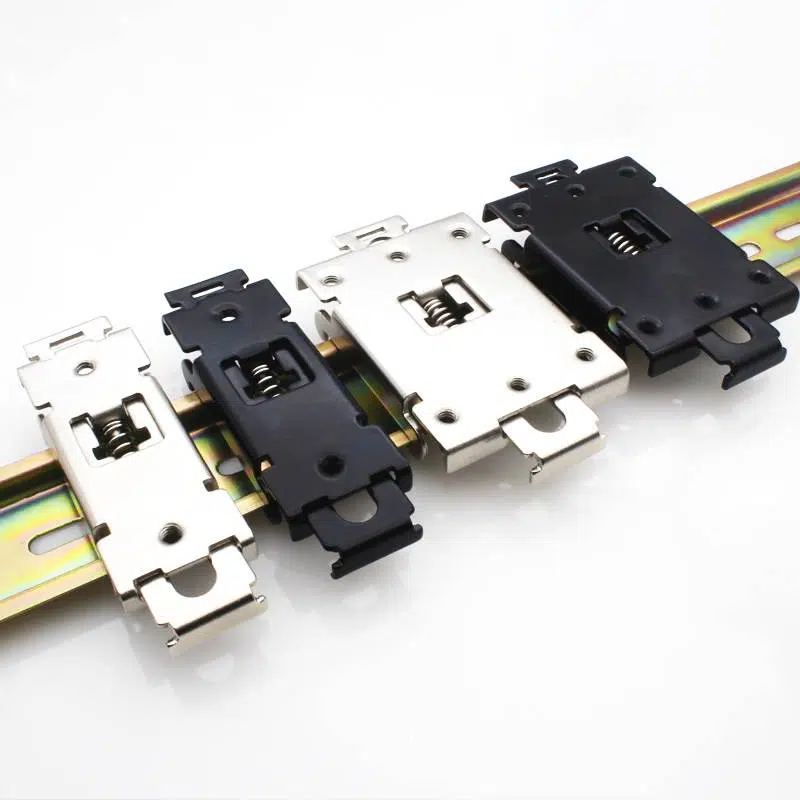
Número do modelo: DGR-09/10
- Cenário aplicável: Relés de estado sólido monofásicos:Ideal para montagem de relés de estado sólido monofásicos, simplificando a integração de componentes eléctricos.
- Fivela niquelada em ferro DIN: A fivela niquelada em ferro DIN durável garante uma montagem segura e robusta da calha.
- Design versátil
- Fixação em calha DIN de 35 mm
- Vários estilos disponíveis
- Calha DIN vendida em separado
Porque é que a AOSI se destaca:
- Mecanismo patenteado de fecho rápido - 60% instalação mais rápida do que a média da indústria, com confirmação audível de "clique"
- Durabilidade de nível militar - Passa no teste de névoa salina de 1000 horas (ASTM B117), ideal para ambientes offshore/químicos
- Compatibilidade universal - A tensão da mola afinada com precisão adapta-se a calhas de 35 mm/32 mm sem ajustamento
- Segurança certificada pela TUV - As patilhas de bloqueio duplo impedem a libertação acidental durante eventos sísmicos
Parte 4. FAQ- Abordagem das principais preocupações na seleção de clipes para calhas DIN
Q1: Como posso determinar se um clip é compatível com o meu tipo de calha DIN?
R1: O nosso sistema universal design com mola adapta-se automaticamente a ambos Cartola (35mm) e carris G32 sem ferramentas. Basta verificar a conformidade com Normas IEC/EN 60715 - todos os clips AOSI têm dupla certificação.
Q2: Qual é o método de instalação mais rápido para painéis de alta densidade?
A2: Ao contrário dos concorrentes com fixação por parafuso, o AOSI Clipes de encaixe reduzir o tempo de instalação para <3 segundos por unidade (validado pela TÜV Rheinland). O feedback tátil de "clique assegura uma montagem segura mesmo em aplicações de painel cego.
P3: Como garantir a fiabilidade a longo prazo em ambientes vibratórios?
A3: Dar prioridade aos clips com patilhas de bloqueio positivo e classificações de testes de vibração. AOSI's Braçadeira resistente a vibrações 20Gps utilizar um mola de duplo braço que supera em 2X o tempo de vida útil dos modelos tradicionais de mola única em sistemas de transporte.
Q4: Posso reutilizar os clips após a remoção?
A4: Enquanto a maioria das marcas se degrada após 20-50 ciclos, o AOSI Construção em aço inoxidável 304 permite Mais de 100 reutilizações sem perder a tensão. Os nossos dados de campo mostram Taxa de retenção do 92% após 5 anos em readaptações de armários PLC.
Q5:Existem opções resistentes à corrosão para ambientes agressivos?
A5: Os clipes padrão de nylon/plástico falham na exposição química. A série de aço inoxidável revestido com EPDM da AOSI (DR-3000X) é aprovada:
- 1000 horas de projeção salina (ASTM B117)
- Resistência aos raios UV (MIL-STD-810G)
- Vedação IP68 quando combinado com o nosso kit de juntas
Conclusão
Selecionar o caminho certo Clip de montagem em calha DIN- seja para resistência à vibração, proteção contra a corrosão ou instalação rápida - é fundamental para a fiabilidade industrial. A escolha do material, a conformidade com as normas e os projectos específicos para o ambiente garantem um desempenho a longo prazo.
Em AOSIA nossa empresa concebe clips que superam a concorrência em termos de durabilidade, velocidade e adaptabilidade. Precisa de uma solução à medida da sua aplicação? Contacte-nos hoje para solicitar amostras ou consulte os nossos especialistas para obter recomendações personalizadas. Vamos proteger os seus sistemas com soluções de montagem concebidas com precisão.

